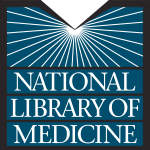- Industria: Library & information science
- Number of terms: 152252
- Number of blossaries: 0
- Company Profile:
The National Library of Medicine (NLM), on the campus of the National Institutes of Health in Bethesda, Maryland, is the world's largest medical library. The Library collects materials and provides information and research services in all areas of biomedicine and health care.
Production factor the effect of which on a worker under certain conditions results in injury or some impairment of health.
Industry:Biology; Chemistry
Progressive, malignant disease of the blood-forming organs, characterized by distorted proliferation and development of leucocytes and their precursors in the bone marrow and blood.
Industry:Biology; Chemistry
Proportionality constant D, relating the flux (flux density) of amount No Entry of entities B, Jn,B, to their concentration gradient
J<sub>n</sub>= –D grad c<sub>B</sub>
Industry:Biology; Chemistry
Quantitative limit on the emission or discharge of a substance from a source, usually expressed in terms of a time-weighted average concentration or a ceiling value.
Industry:Biology; Chemistry
Quantitative measure (a concentration or a number) of a constituent of an environmental medium that ensures aesthetically pleasing air, water, or food and does not result in a significant risk to the user.
Industry:Biology; Chemistry
Quantity value provided by a measuring instrument or a measuring system.
Industry:Biology; Chemistry
Quotient obtained by dividing one set of odds by another. The term “odds” or “odds ratio” is defined differently according to the situation under discussion. Consider the following notation for the distribution of a binary exposure and a disease in a population or a sample.
Industry:Biology; Chemistry
Ratio of the probability of occurrence of an event to that of non-occurrence, or the ratio of the probability that something is so, to the probability that it is not so.
Industry:Biology; Chemistry
Ratio of the solubility of a chemical in octanol divided by its solubility in water.
Note: Measure of lipophilicity, used in the assessment of both the uptake and physiological distribution of organic chemicals and prediction of their environmental fate.
Industry:Biology; Chemistry
Ratio of toxicant exposure (estimated or measured) to a reference value regarded as corresponding to a threshold of toxicity.
Note: If the hazard quotient exceeds unity, the toxicant may produce an adverse effect but normally this will require a hazard quotient of several times unity; a hazard quotient of less than one indicates that no adverse effects are likely over a lifetime of exposure.
Industry:Biology; Chemistry
